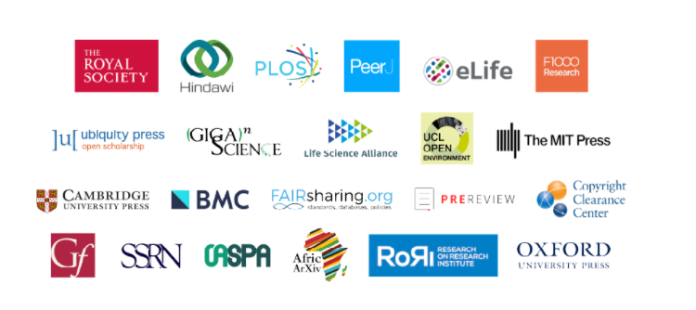
Levels of COVID-19 research data sharing have remained low during the pandemic, and preprinting of research on the virus has been lower than two initiatives tried to ensure it would be. This is according to a new report that examines the effectiveness of initiatives taken by players in the research ecosystem to promote sharing of COVID-19 research by stepping up open science approaches.
While the efforts of scientific publishers and the research community have speeded up publication times for COVID-19 research, and made much of it freely accessible, more effort is needed if society is to truly benefit from open science, the Scholarly Communication in Times of Crisis: The response of the scholarly communication system to the COVID-19 pandemic report says.
The sharing of the SARS-CoV-2 genome is seen as the poster child for open science, and the pandemic held up as a turning point for open science. Yet the report finds this has only partly been realised. It makes a series of key recommendations, three of which focus on opening up data, encouraging preprinting and strengthening collaboration across the scholarly communication ecosystem:
- Only joint efforts will improve the availability and quality of research data sharing. Common data policy templates should be developed to require data sets and software to be posted to a trusted, FAIR-enabling repository, and to require formal citations to data sets and software.
- Mandating preprinting and rewarding researchers who use preprints could shift the needle. Publishers should include posting of preprints in their submission workflows and leaders should advocate for preprints.
- Publishers and other scholarly communication organisations should intensify their joint efforts to improve the availability and quality of data and metadata on scholarly publishing, allowing for robust evidence-informed approaches to innovation in scholarly communication.
The report concludes that there is no magic bullet to improving scholarly communication. It is a joint responsibility that requires collaboration and coordinated action across stakeholders in the research system.
Early in 2020 a Wellcome-coordinated COVID-19 statement, signed by over 30 publishers, called for open or free access to all COVID-19 publications for the duration of the pandemic; for COVID-19 papers to be made available via preprint servers prior to journal publication; and data from COVID-19 research to be shared as early as possible.
A second initiative, launched by a group of publishers and related organisations, the COVID-19 Rapid Review Initiative, worked on implementing the commitments made in the Wellcome-coordinated COVID-19 statement and aimed to accelerate peer review of COVID-19 papers.
Scholarly Communication in Times of Crisis: The response of the scholarly communication system to the COVID-19 pandemic has been written by a team comprising researchers, publishers, and other scholarly communication experts, all associated with the COVID-19 Rapid Review Initiative. It presents the results of research undertaken by the team and reviews research conducted by others, with a view to identify opportunities for the scholarly communication stakeholders to effect change that will extend beyond the pandemic and have long-lasting benefits.
The authors also conclude that obtaining robust evidence on the response of the scholarly communication system to the COVID-19 pandemic is challenging. Relevant publishing data is often not available or is of limited quality. To enable robust evidence-informed approaches to innovation in scholarly communication, joint efforts to improve the availability and quality of this type of data are needed.
Ludo Waltman, Associate Director, Research on Research Institute (RoRI) and Professor of Quantitative Science Studies, Centre for Science and Technology Studies (CWTS) at Leiden University says: “Development of innovative new forms of peer review, for instance by @PREreview_ and @mitpress @RapidReviewsC19, is extremely important and deserves further attention from all relevant actors in the system. I hope that the pandemic will be an impetus for more innovation in this area.”
Stephen Pinfield, Associate Director, Research on Research Institute (RoRI) and Professor of Information Services Management, University of Sheffield says: “Approaches adopted during the pandemic have powerfully illustrated the benefits of openness. It is important that we apply those lessons in future to improve the scholarly communication system for the benefit of the research community and society more generally.”
From 13.00 Central European Time the report will be available at: https://doi.org/10.6084/m9.figshare.17125394



























